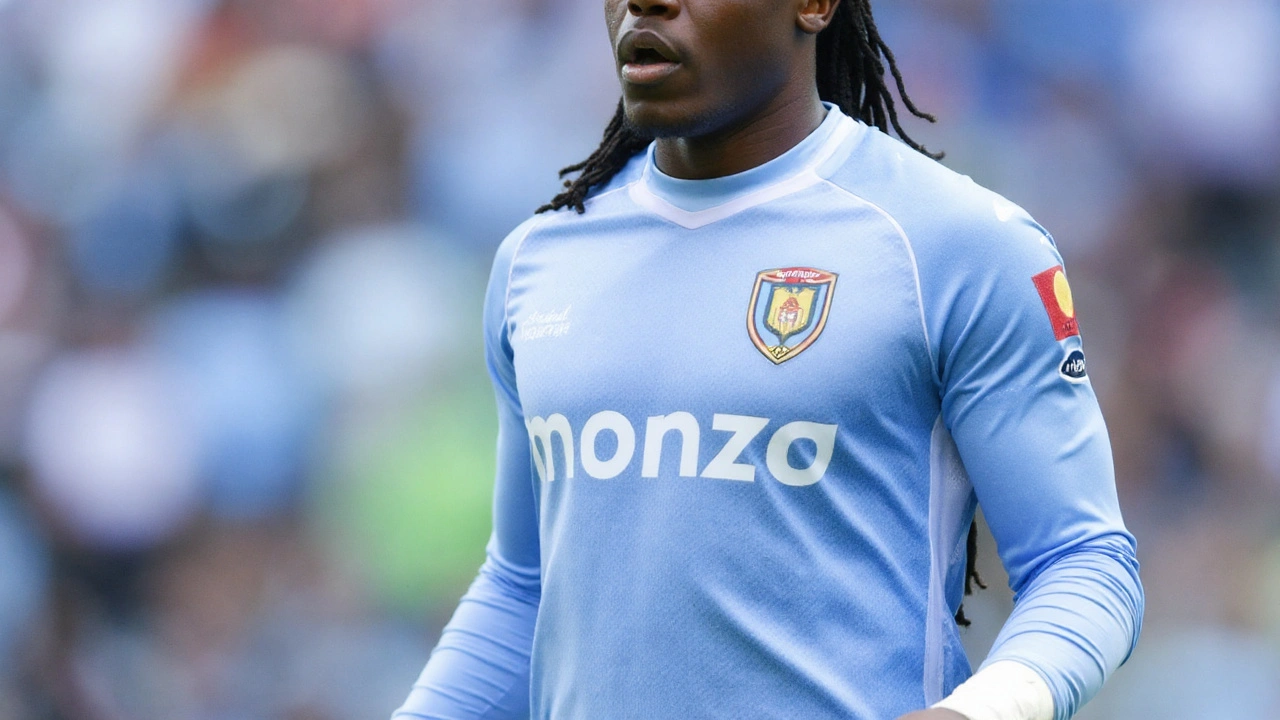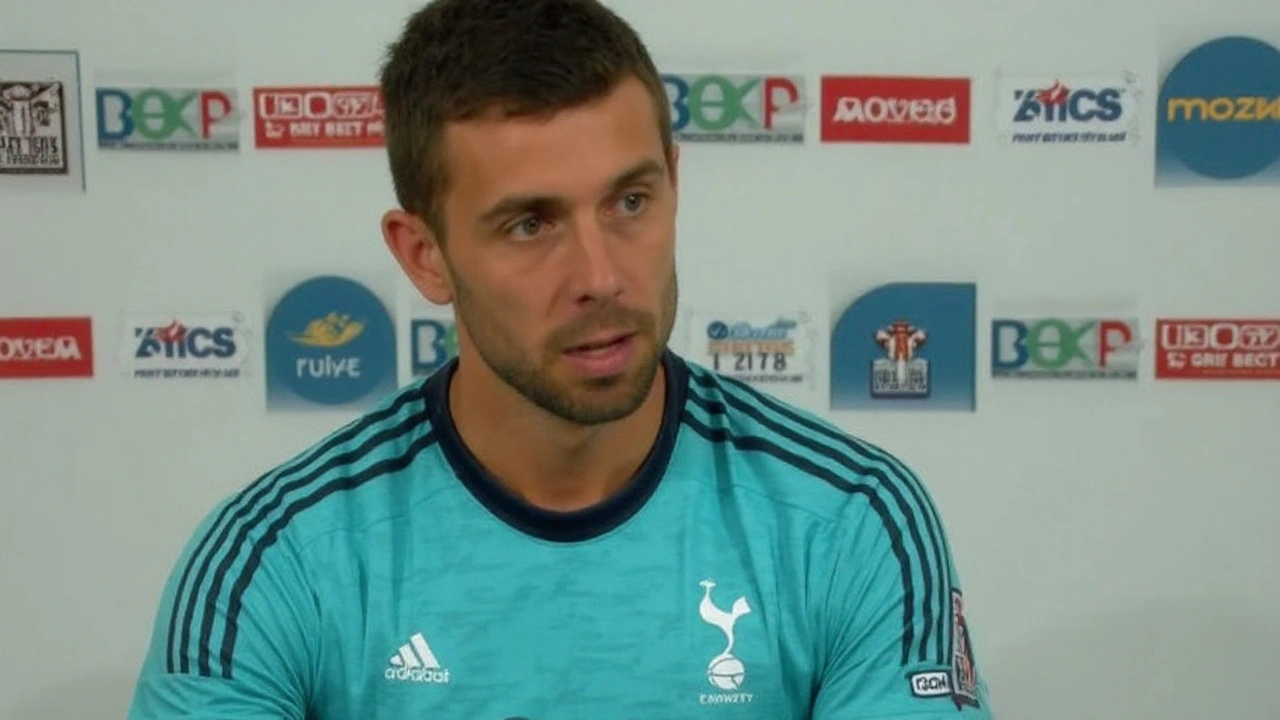Frank's offensive doctrine at Tottenham
Since arriving at the North London club three months ago, Thomas Frank has stopped talking about defensive stability and started preaching relentless attack. The Danish coach, previously noted for his work at Brentford, arrived with a simple mantra: score more, press higher, and never settle for a defensive posture. Within weeks, training sessions have been dominated by drills that force the team to win the ball within five seconds of losing it, turning every loss of possession into a quick‑fire chance on goal.
In the latest post‑match press after a 2‑2 draw with Brighton, Frank described the performance as the "most complete" of the season, even though the opposition netted twice. He pointed to the aggressive high‑press as the catalyst for creating “so many good opportunities,” stressing that the team’s willingness to chase the ball back was a direct reflection of his attacking credo. According to him, the counter‑pressing system not only disrupts opponents’ rhythm but also forces them into hurried clearances, often culminating in dangerous crosses and shots from the edge of the box.
Beyond the tactical framework, Frank insists that mindset is the real differentiator. He called the Brighton comeback a "pure mental" battle, praising his squad for overturning a 2‑0 deficit with renewed belief. The manager believes that a team’s attitude in the face of adversity is as important as any formation on paper, and he has been embedding that philosophy through daily video sessions, mental‑strength workshops, and one‑to‑one talks with senior players.

Impact on Tottenham and the road ahead
The shift in philosophy has already begun to show on the pitch. Tottenham’s expected goals (xG) per game have risen from 1.3 last season to 1.9 under Frank, while the number of shots from outside the box has doubled. New signings, such as a dynamic winger from the Dutch league and a hard‑working central midfielder, have thrived in the high‑press environment, delivering both assists and late runs into the box. Even veteran forwards, previously criticized for a lack of urgency, are now recording higher pressing statistics and contributing more to the build‑up play.
Frank’s coaching staff shares his belief that any player can improve with the right guidance. He has instituted tailored development plans, focusing on positional awareness for young prospects and refining finishing techniques for seasoned attackers. Training drills now simulate match‑day pressure, with small‑sided games that require players to regain possession within three passes, reinforcing the urgency he demands.
Despite the promising signs, Frank acknowledges the Premier League’s unforgiving nature. He admits that the high‑press can be a double‑edged sword, leaving the team vulnerable to quick transitions if the press is bypassed. To mitigate this, he has added a semi‑defensive pivot in midfield, allowing the team to recycle possession without losing its attacking thrust. The balance between aggression and discipline is a work in progress, but the manager remains confident that the squad’s mental resilience will carry them through rough patches.
Looking forward, Frank is set to continue refining his tactical nuances while nurturing the club’s new captain, who has embraced the philosophy of leading by example on the pitch. The focus will stay on sharpening the team's positional play, improving decision‑making in the final third, and keeping the crowd entertained with a brand of football that aims to put the net on the board as often as possible. The journey is still early, but Tottenham’s direction under Frank is unmistakably geared toward a more exciting, goal‑rich future.

Delaney Lynch
September 21, 2025 AT 19:16Thomas Frank's bold shift to attack, undeniably, has injected a fresh sense of excitement into Tottenham's stadium, and the fans can already feel the pulse! The high‑press drills, which demand ball recovery in under five seconds, are not just a tactical tweak, they are a philosophy that redefines player mindset, and that’s truly inspiring. Every training session now feels like a collective workshop, where players, coaches, and staff all collaborate, share ideas, and push each other harder, which creates a tight‑knit community. The emphasis on quick transitions, pressing opponents high up the pitch, and creating overloads in the final third, provides endless opportunities for young talents to showcase their flair, and that’s priceless. Moreover, the mental‑strength videos and one‑to‑one talks, sprinkled throughout the week, help the squad build confidence, resilience, and a winning attitude, which is essential in the Premier League. The recent 2‑2 draw against Brighton, while not a clean sheet, demonstrated how the team can bounce back from a two‑goal deficit, proving the mental battle narrative holds water. Fans have already noticed a surge in shots from outside the box, the xG numbers climbing steadily, and that statistical edge reflects the underlying aggressive intent. The new winger from the Dutch league, with his pace and dribbling, instantly fit the high‑press system, slicing through defenses, delivering dangerous crosses, and adding a fresh dynamic to the attack. Likewise, the hard‑working central midfielder, often underrated, now thrives on pressing, recoveries, and late runs into the box, becoming a silent engine of the team. Even veteran forwards, previously criticized for lack of urgency, have begun to log higher pressing metrics, showcasing how the culture shift affects every tier of the squad. The semi‑defensive pivot, introduced to mitigate transition risks, cleverly balances aggression with stability, ensuring the team retains possession without sacrificing forward thrust. Training drills that simulate match‑day pressure, using small‑sided games, keep the intensity high, and players learn to make rapid decisions under duress, a skill that translates directly onto the pitch. The coaching staff’s commitment to tailored development plans, focusing on positional awareness for youngsters and finishing techniques for seasoned attackers, guarantees continuous growth, and the results are already visible. While the high‑press can be a double‑edged sword, the collective belief in the philosophy, reinforced daily, equips the team to handle setbacks, adapt quickly, and maintain belief. Ultimately, this vibrant, goal‑rich approach not only entertains the crowd, but also lays a solid foundation for sustainable success, and we can all be excited about what’s to come!
Nicholas Mangraviti
September 21, 2025 AT 20:06Frank's press is simple. It works because players understand it. The results speak for themselves.
Jared Greenwood
September 21, 2025 AT 21:13The shift to a relentless high‑press is exactly what English football needs-no more passive, no more sitting back. Frank's system pumps the tempo, forces opponents into making errors, and creates immediate scoring chances. It's a tactical renaissance, a full‑court press that mirrors the intensity of top‑flight matches. The squad's conditioning, the rapid transition from defense to attack, and the use of a pivot to shield vulnerable spaces all demonstrate a sophisticated, aggressive blueprint. If other Premier League clubs lag, they'll be crushed under this pressure.
Sally Sparrow
September 21, 2025 AT 22:20Honestly, the hype around this "press" is overblown. Yes, it's louder and flashier, but you’re trading solidity for spectacle. The 2‑2 draw against Brighton shows the glaring defensive gaps that appear when the press is breached. The semi‑defensive pivot is a half‑hearted fix, not a real solution, and it will only delay the inevitable collapse against faster counter‑attacks. Fans deserve results, not just possession stats and xG graphs. Until the backline learns to hold its shape, this attacking fantasy will crumble.
Eric Yee
September 21, 2025 AT 23:26Love the new vibe keep it rolling!